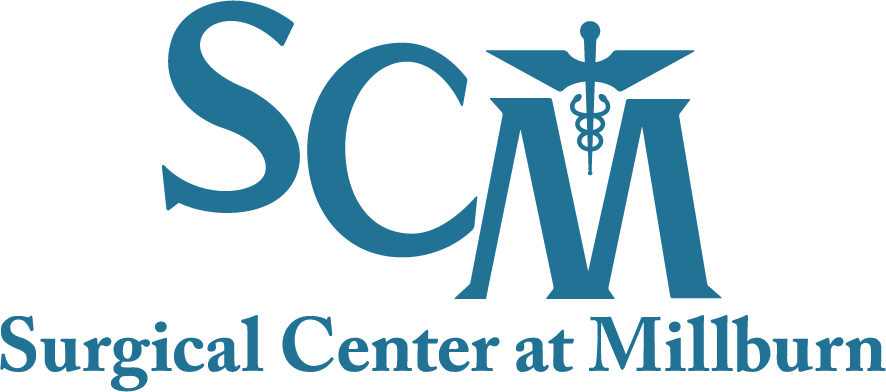Frequently Asked Questions
What are the hours of operation?
7:00 a.m. to 4:00 p.m. Monday – Friday
What should I wear the day of my procedure?
You will be provided a surgical gown during your procedure. Please wear loose, simple, comfortable clothing and comfortable walking shoes. Leave all jewelry and contacts at home. Please keep in mind what you are having done and bring the appropriate clothes. For example, for shoulder surgeries, loose button-up shirts are best, for leg surgeries, loose shorts or pants are recommended. Whichever site you are having worked on, wear something that will facilitate a bandage, cast or other type of dressing. And please remember to leave all valuables at home.
Day of Surgery
On the day of surgery, you should arrive at the Center approximately one and one half hours before surgery for admitting and pre-operative preparation. Your time of arrival may vary depending on your surgeon’s wishes.
You will also be asked to sign a “Consent for Treatment” form that acknowledges your permission for the physicians and facility to care for you. If the patient is a minor, a parent or legal guardian must sign this form so make sure this person accompanies the minor to the surgery.
Pre-Procedure
What medications and medical conditions should I notify my physician or Surgical Center about?
If you are taking any heart medications, blood pressure medications, blood thinners including aspirin or aspirin-like products (like ibuprofen), diet pills, herbal supplements or diabetes medications please contact a pre-op nurse by calling 973-912-8111.
In addition, please contact us if you have any of the following medical conditions:
- Latex allergy or latex sensitivity
- Diabetes
- Heart conditions
- Kidney or liver failure
- Pregnancy
- If you have been feeling ill lately (fever, cough, or other concerns)
Why can’t I have anything to eat or drink before surgery?
There are several reasons for this rule. First, if there are contents in your stomach, you are more likely to feel nauseated and get sick after surgery, and no one wants that. Second, when anything is present in your stomach, including water, excess saliva, food or drink, these contents can be regurgitated and inhaled into the lungs. This may cause complications, including severe pneumonias.
Why should I fill prescriptions that my physician has given me before I have my surgery?
After your procedure, you may be tired and groggy and may not be up to a trip to the pharmacy. Filling your prescriptions beforehand will be easier on you and you will have pain medications on hand when you need them.
Post-Procedure
What can I do to minimize pain after surgery?
If you are having a surgical procedure, you may experience normal pain afterwards. To minimize pain after an orthopedic procedure, ice and elevation of the affected extremity will help minimize swelling, reducing pain. If you have been given a prescription for pain medications, get them filled as soon as possible (before surgery). Stay on top of your pain by taking the pain medication when you first become aware of pain sensations. Remember, always eat before taking pain medications to avoid nausea.
Why are cuts and abrasions around my surgical site important?
If there is a break in the skin around your surgical site, the chance of infection is increased. If you notice any break in the skin anywhere close to the surgical site, please notify your surgeon immediately.
Billing Information
Determining the Cost of Surgery:
The cost of your surgery is determined by three factors, each will be billed separately:
- First, a single predetermined fee is charged for each type of procedure. This provides a reasonably accurate estimate of your surgery costs in advance. The facility fee includes medications, most standard supplies and the use of operating and recovery rooms.
- Second, you will be billed by your surgeon for his/her services. You will also be billed for the services of the anesthesiologist and, if applicable, pathologist, radiologist and/or surgical assistants.
- Third, you will be billed for any laboratory tests, if ordered, by the laboratory.
We are committed to providing you with the best possible care. If you have medical insurance, we are anxious to help you receive your maximum allowable benefits. In order to achieve these goals we need your assistance and your understanding of our payment policy.
Payment for Services
Payment for services is due at the time services are rendered unless payment arrangements have been approved in advance by our staff. We accept cash, checks or credit cards. We will be happy to process your insurance claim-form for your reimbursement. For certain insurance plans we may accept assignment of insurance benefits.
Insurance Coverage
A Surgical Center accounts representative may call you to discuss your health insurance coverage. Before surgery, please familiarize yourself with your insurance plan as this will help you understand our billing procedures and charges. If you have questions about your insurance coverage, please contact us at (973) 912-8111.
If you have health insurance, please bring a copy of your identification card to the Center. We may also need the insurance forms supplied by your employer or the insurance company. Your insurance carrier may have special requirements, such as a second surgical opinion or pre-certification for certain tests or procedures. It is your responsibility to make sure the requirements of the plan have been met.
If you are covered by Medicare, please bring a copy of your card to the Center. Note that Medicare has payment limitations on a number of services and items. You are also responsible for deductibles and co-payments.
